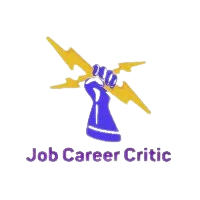The Truth About HR Departments
The truth about HR departments comes from a former CEO. Let me offer you some advice for the future: HR is not your friend. They are often seen as well-meaning but misunderstood social workers whose primary function is to protect the company’s executives and interests rather than solely focusing on helping employees. Think of them as a delicate balance, akin to a third rail. When engaging with them, you must tread carefully because the outcomes may not always favor you. HR processes may not always ensure due process, fairness, or equity.
While discussing this, let’s address the typical rhetoric about being “the most valuable assets” of the company. In reality, the company’s real estate holdings often hold more value. This is why there’s a push to get people back into the office; employees can be replaced more easily than excess office space. The challenge lies in dealing with vast, unused office space in a soft market.
The Truth Is Hard To Accept
This story was published in the Quora Digest and sheds light on the ethical, moral, and social challenges in Corporate America regarding safeguarding employees from unscrupulous managers or bosses. It also underscores corporate America’s primary mission: profit. Pursuing profit sometimes blinds companies to the working conditions employees endure, leading to unproductive behavior in the long run, which can eventually harm profits.
The fundamental question is, what is the mission of an HR department? According to SHRM’s mission statement for HR departments, their goal is to provide effective human resource management. This involves developing and implementing policies, programs, and services contributing to corporate and employee objectives. They aim to balance employee needs and the company’s requirements properly. Additionally, they are committed to ensuring a diverse workforce in a safe, discrimination- and harassment-free environment, maintaining compliance with employment laws and government regulations, providing management and employee training, and developing policies and procedures.
Loyalty To Company First
Part of their mission is to look out for the welfare of employees. However, this involves a delicate balance between the needs of the company and the needs of an individual employee. Unfortunately, it’s essential to acknowledge that sometimes employees may face challenging situations. For instance, when dealing with a manager overseeing a team of 50 workers, the decision to replace the manager or the employee might hinge on factors like production standards and the time required to find a suitable replacement.
Another critical aspect is ensuring a clear separation between HR and other company departments. This separation aims to maintain professionalism and guarantee fair treatment for all employees, including managers. When personal relationships form between managers and HR personnel, it can lead to favoritism and fairness being compromised.
Many HR Heads Agree
I have heard from CEOs, HR managers, and employees working in HR, and their messages are consistent. Complaining about your superiors without substantial evidence can have consequences, including risking your job. When there is no strict separation between managers and HR, expecting HR to rule in favor of employees consistently becomes challenging. However, practicality often dictates that relationships develop when employees spend years working together, especially when a company sponsors social events and outings that encourage camaraderie.
In essence, a company’s implementation of its mission statement shapes its approach to profitability and sustainability. While many companies genuinely prioritize their employees’ well-being, competitive pressures and certain practices may sometimes undermine their mission goals. Profitability remains a paramount concern for any company, and other aspects, including employee relations, may follow.
Just Be Wise About Your Company’s HR Record
Please don’t be disheartened by everything I’ve revealed. I’ve been surprised by the consistent messages from CEOs, HR managers, HR department employees, and workers—all echoing the sentiment that complaining to HR can sometimes lead to challenging outcomes. However, there’s good news: you have options in today’s job market. You don’t have to endure an oppressive work environment. Consider searching for a job that better aligns with your values and career aspirations. Many job opportunities offer competitive pay and a supportive workplace that enables you to thrive without the stress that can impede your performance.
It’s indeed a challenging aspect of the modern work environment. Still, it’s worth noting that many companies are committed to profitability while prioritizing their employees’ well-being and professional growth.




